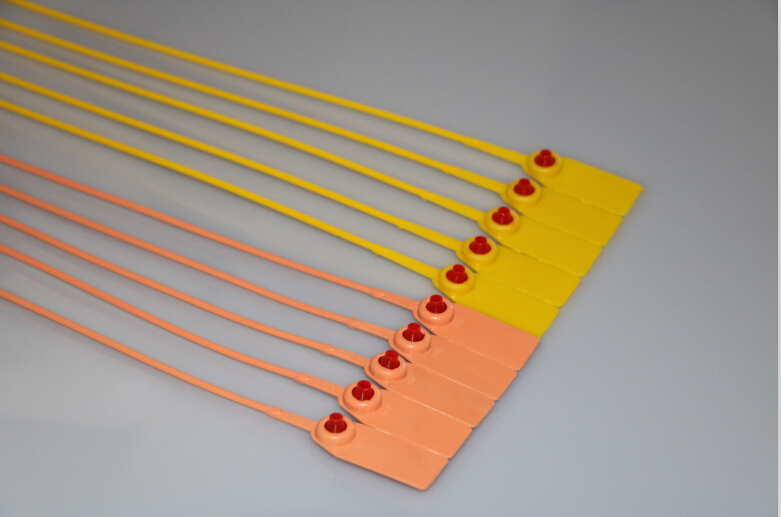.png) Fax: +86 534 3619 286
Fax: +86 534 3619 286 No. 160, South of Qingxu Road,
Xuyuanzi Industrial Park,
Dezhou 253700, Shandong, China.
Security seals are mechanisms used to seal containers in a way that provides tamper evidence and some level of security. Such seals can help to detect theft or contamination, either accidental and deliberate. Security seals are commonly used to secure vehicles, chemical drums, airline duty free trolleys and utility meters. Typically they are considered an inexpensive way of providing tamper evidence of intrusion into sensitive spaces.
Vulnerabilities Security seals are not designed to resolve all security problems:
The effectiveness of seals is strongly dependent on the proper protocols for using them. These protocols are the official and unofficial procedures used for seal procurement, storage, record keeping, installation, inspection, removal, disposal, reporting, interpreting findings, and training. With a good protocol, a modest seal can provide excellent security. On the other hand, a sophisticated seal used poorly may be worse than useless if naively trusted.

Operation Security seals can be split into two main groups: single use and reusable. Single use seals are typically made of plastic or metal, and the used material and production technology is the key to their security level. Reusable seals are usually electronic or mechanical rather than just made from plastic, and if purely plastic, only one part is reusable. Electronic and mechanical seals are generally used for the transportation industry, with seal fixed to the back of trucks, trailers and shipping containers. A reusable mechanical or electronic seal can be fitted to the rear or loading doors, extending a cable from itself through fixing points on the doors, and when sealed generating a unique number which is logged. When the door is next opened this number changes, so it provides tamper evidence for the load.
A measure of a seal's security is whether it has obtained an ISO PAS 17712 rating. US Customs-Trade Partnership Against Terrorism (C-TPAT) and the World Customs Organisation’s Framework of standards, endorsed and encouraged the use of ISO compliant seals.
The requirements for certain security level of seals are defined in the ISO PAS 17712. The seals that belong to the High security level and Security level are also called "barrier seals". They are made of different metals or metal alloys, meaning that they require special tools to be opened, such as bolt cutters or pliers. Cable seals and bolt seals also fall into this category. Designed to deter opportunistic theft of high value goods, they also can often be branded and numbered to improve tamper resistance and provide excellent security for containers. The seals that are in the Indicative level as to ISO PAS 17712 are made of plastic or thin metal.
 © Copyright 2016 All Rights Reserved.
© Copyright 2016 All Rights Reserved.